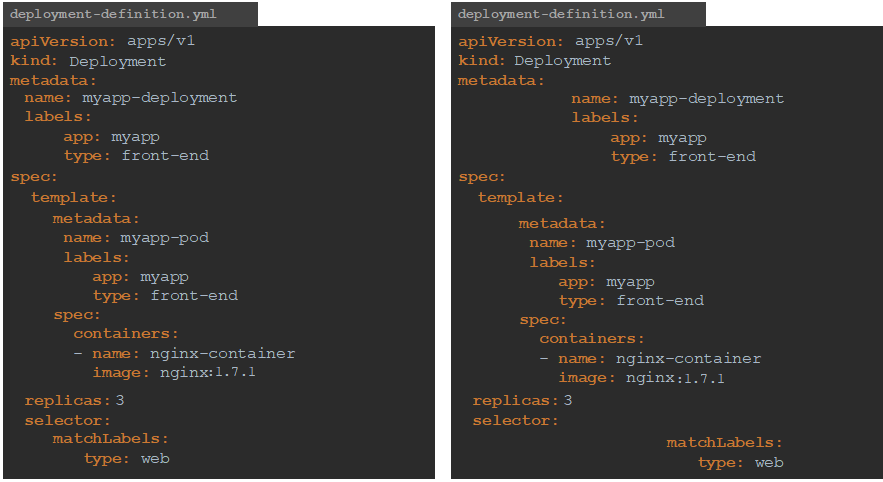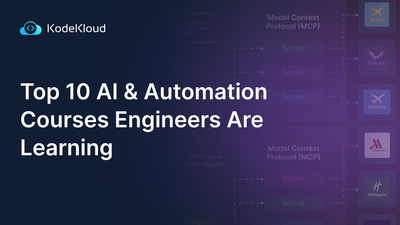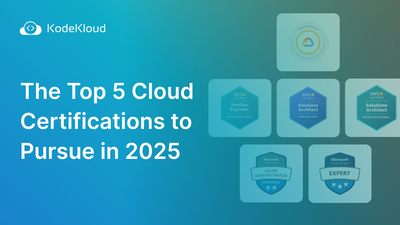In this blog, we discuss how to manage your time effectively during the Kubernetes certification exams. The information provided in this blog is based on the information provided in the Candidate Handbook and Exam Tips documentation available on the CNCF website.
Kubernetes Certification Exams Overview
The Kubernetes certification exams are practical and consist of 15 to 20 scenario-based questions to be solved within 2 hours. Since the exams are practical, it is highly unlikely that you will get to solve all the tasks in the given time. Therefore, it is important to manage your time effectively to solve enough questions to clear the exam.
Let's now look at what you can do to improve time management when taking Kubernetes certification exams.
4 Tips on Managing Time for Kubernetes Certification Exams
Below are 4 important tips:
Tip 1: Attempt All Questions
During the exam, you are presented with a set of questions. Some may be very easy, some that make you think a little bit, and some that you have no clue about, hopefully not too many of that. And they are not there in any particular order.
You may have easy or tough questions initially or towards the end. Now, you don’t have to get all of it right. You only need to solve enough to gain the minimum required percentage to pass the exam. You don’t want to get stuck in any of the tough questions early on and not have enough time to attempt the easy ones that come after.
You have the option to attempt the questions in any order you like. So, you could skip the tough ones and attempt all the easy ones first. Once you are done, if you still have time, you can attempt the ones you skipped.
Tip 2: Don’t get stuck!
The second tip is not to get stuck on any question. Even for a simple one. For example, you are attempting to solve a question that looks simple. You know what you are doing, so you attempt. The first time you try to execute your work, it fails.

You read the error message and realize that you had made a mistake, like a typo. So you go back and fix it and run it again.

This time, you get an error message, but you are not able to make any sense of it. Even though that was an easy question, and you knew you could do it, if you cannot make any sense out of the error message, don’t spend any more time troubleshooting or debugging that error. Mark that question for review later, skip it, and move on to the next.
Now, I KNOW that urge to troubleshoot and fix issues. But this is not the time for it. Leave it to the end and do all the troubleshooting you want after you have attempted all the questions.
Tip 3: Be good with YAML
The third tip is to be really good with YAML. You must spend enough time practicing your definition files in advance. If, for each question, you have to go through each line of your YAML file and fix the indentation errors, you are not going to be able to make it through all questions.
Your YAML files don’t have to look pretty. Because nobody is going to look at them. I am guessing that the work is evaluated automatically, so only the end result is evaluated and not how pretty your YAML files are.

So even if your file looks like this one on the right, whereas it should have looked like the one on the left, it’s still fine as long as the file structure is correct. And that you have the right information in the file and can create the required Kubernetes object using the file. To do that, you need to get your YAML basics right.
If you are a beginner, check out KodeKloud's YAML practice exercises.

Tip 4: Use aliases and shortcuts
Finally, use aliases or shortcuts to get things done quickly. These can save you a few seconds on each command, ultimately accumulating to a few minutes towards the end. Below is a list of some shortcuts you can use:
- po for Pods
- rs for ReplicaSets
- deploy for Deployments
- svc for Services
- ns for Namespaces
- netpol for Network policies
- pv for Persistent Volumes
- pvc for PersistentVolumeClaims
- sa for service accounts
Consider also using imperative commands to save you time instead of building the YAML definition files. For example, if you are asked to create a pod named nginxusing the nginx image use the below command:
kubectl run nginx --image=nginxAnother way to save time when creating, updating, and deleting Kubernetes objects is by using imperative commands built into the kubectl command-line tool.
Examples of imperative Management
Below are some examples of imperative management using the kubectl create command:
Available Commands:
clusterrole Create a ClusterRole.
clusterrolebinding Create a ClusterRoleBinding
configmap Create a configmap
deployment Create a deployment with the specified name.
job Create a job with the specified name.
namespace Create a namespace with the specified name
poddisruptionbudget Create a pod disruption budget
priorityclass Create a priorityclass with the
quota Create a quota with the specified name.
role Create a role with single rule.
rolebinding Create a RoleBinding
secret Create a secret using specified subcommand
service Create a service using specified subcommand.
serviceaccount Create a service accountRefer to this link for more on Kubernetes imperative commands.
Conclusion
Time management is a critical factor in achieving success in Kubernetes certification exams. It is essential to develop effective time management skills and strategies to ensure that you can complete the exam confidently and achieve the best possible results. One of the best ways to develop this essential skill is by taking mock exams to familiarize yourself with the exam environment.
Access mock exams for CKA, CKAD, and CKS exams from KodeKloud certification exam preparation courses below:
- Certified Kubernetes Administrator (CKA)
- Certified Kubernetes Application Developer (CKAD)
- Certified Kubernetes Security Specialist (CKS)
We recommend checking out the following course from KodeKloud to polish your Kubernetes skills:
You can also test your Kubernetes expertise with our FREE fun and challenging set of hands-on challenges.
More on Kubernetes certification exams:
- CKA, CKAD, CKS - Frequently Asked Questions
- CKA vs CKAD vs CKS – What is the Difference
- Kubernetes Certifications: CKA vs CKAD
- Kubernetes and Cloud-Native Associate (KCNA) Course: Your Certification Guide
- Top 5 Tips to Prepare for the CKA Exam in 2023: A Comprehensive Guide
- Top 5 DevOps Certifications in 2023
- CKS Exam Guide: Overview, Tips, and Resources (2023)

















Discussion